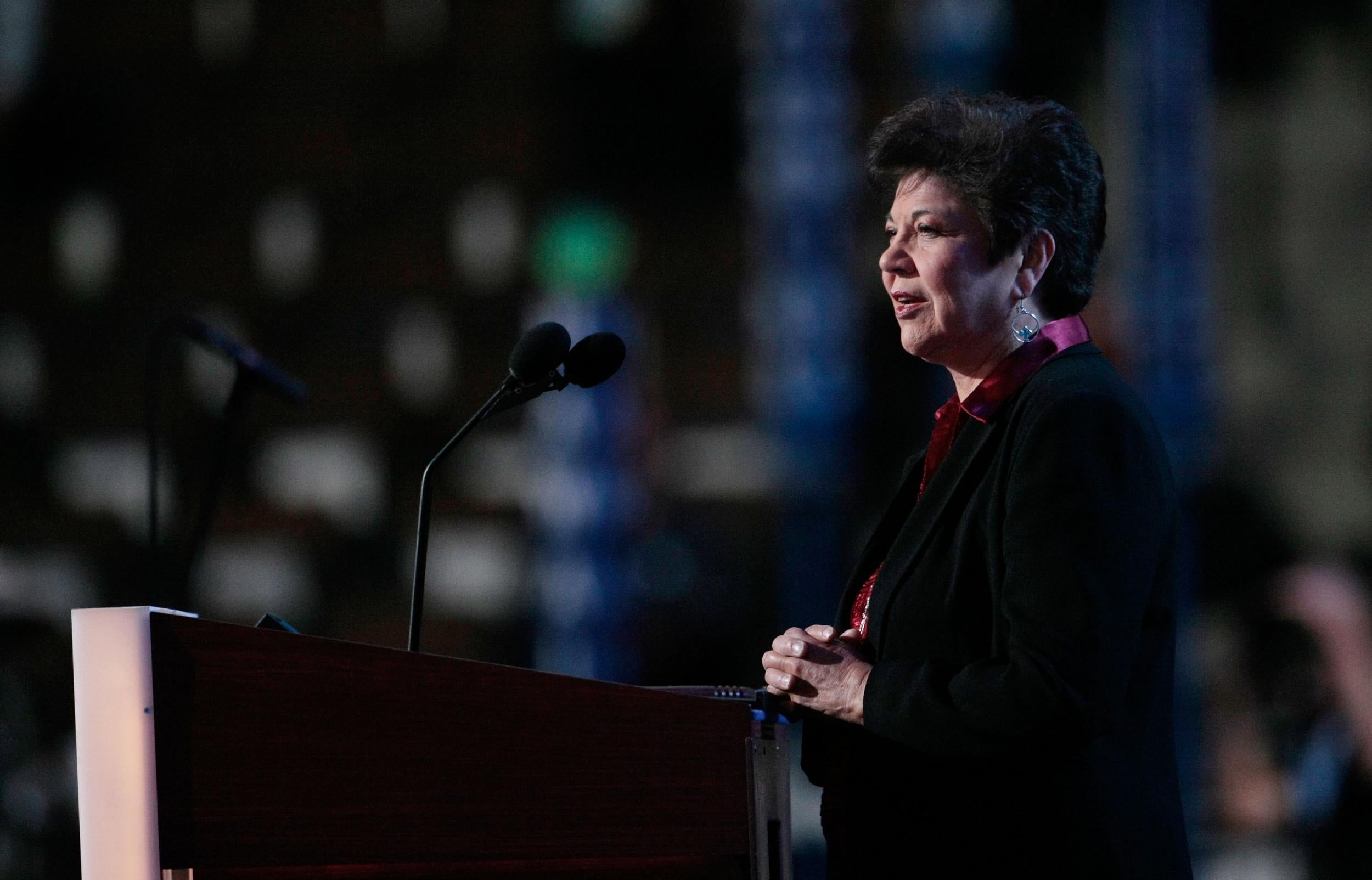Two Colorado 'faithless electors' are determined not to vote for Hillary Clinton
Two electors want to stage a protest vote to stop Donald Trump from getting into the White House. A judge ruled against them

Your support helps us to tell the story
From reproductive rights to climate change to Big Tech, The Independent is on the ground when the story is developing. Whether it's investigating the financials of Elon Musk's pro-Trump PAC or producing our latest documentary, 'The A Word', which shines a light on the American women fighting for reproductive rights, we know how important it is to parse out the facts from the messaging.
At such a critical moment in US history, we need reporters on the ground. Your donation allows us to keep sending journalists to speak to both sides of the story.
The Independent is trusted by Americans across the entire political spectrum. And unlike many other quality news outlets, we choose not to lock Americans out of our reporting and analysis with paywalls. We believe quality journalism should be available to everyone, paid for by those who can afford it.
Your support makes all the difference.Two faithless electors are appealing a judge’s decision to uphold a Colorado law which requires electoral college members to vote for the winning candidate in their state - thwarting an attempt to stage a protest vote against Donald Trump
US district judge Wiley Daniel denied a request by two electors in Colorado to scrap the law which requires the nine electors in the state to vote for the candidate who won the most votes. In Colorado, that was Hillary Clinton.
The two electors’ lawyer, Jason Wesoky, said he will seek an emergency appeal in a last-ditch attempt to block the law before his clients must cast their vote for Ms Clinton on 19 December.
The two electors who contested the law, Polly Baca and Robert Nemanich, are registered Democrats. But they wanted to vote for an alternative Republican candidate and urge other Republican electors to do the same to stop Mr Trump entering the White House.
The state law reads: "Each presidential elector shall vote for the presidential candidate and, by separate ballot, vice-presidential candidate who received the highest number of votes at the preceding general election in this state."
But Ms Baca and Mr Nemanich argued in their lawsuit that the electoral college is supposed to be an independent body that is free to decide who deserves to be president. Mr Nemanich has also called for electoral college voters to receive briefings on Russian influence on the election before they cast their votes, and briefing for judges who face electoral college-related lawsuits.
The Bill Clinton-appointed judge found that suspending the Colorado law would have harmed the voters and put at risk a smooth and peaceful presidential transition.
"Part of me thinks this is really a political stunt to prevent Donald Trump from becoming president," said Mr Daniel.
All 538 electors are meeting in their respective states on 19 December to rubber stamp the election of Mr Trump.
The president-elect won a big majority of 306 electoral votes around the US, compared to Ms Clinton’s 232 votes. The winner only needed 270. While a handful of Democrat electoral voters said they would stage a protest vote, choosing an alternative like Mitt Romney, only one Republican voter in Texas said he would not vote for Mr Trump as it would "dishonour God".
Mr Trump’s lawyers had contested the two electors’ lawsuit in Colorado.
"This is very serious stuff," Christopher Murray, a lawyer for the Colorado Republican Party, said in court. "If you vote as a free agent in the electoral college, you're taking Colorado voters' voices away."
The ruling in Mr Trump’s favour comes as Ms Clinton has won a majority in the popular vote of close to 3 million. Mr Trump insisted he would also have won the popular vote if he had campaigned harder in a smaller number of states.
Green party presidential candidate Jill Stein has also been the figurehead of the recount movement, focusing on recounting votes in Michigan, Wisconsin and Pennsylvania. She said the voting system was "messed up" with broken voting equipment, missing boxes of ballots and communities of colour and poor people being left out altogether.
The movement raised millions of dollars with an average donation of less than $50 to recount the votes through an army of volunteers.
In Wisconsin, Mr Trump still came out on top by an extra 131 votes, widening his majority over Ms Clinton.
Subscribe to Independent Premium to bookmark this article
Want to bookmark your favourite articles and stories to read or reference later? Start your Independent Premium subscription today.
Join our commenting forum
Join thought-provoking conversations, follow other Independent readers and see their replies
Comments